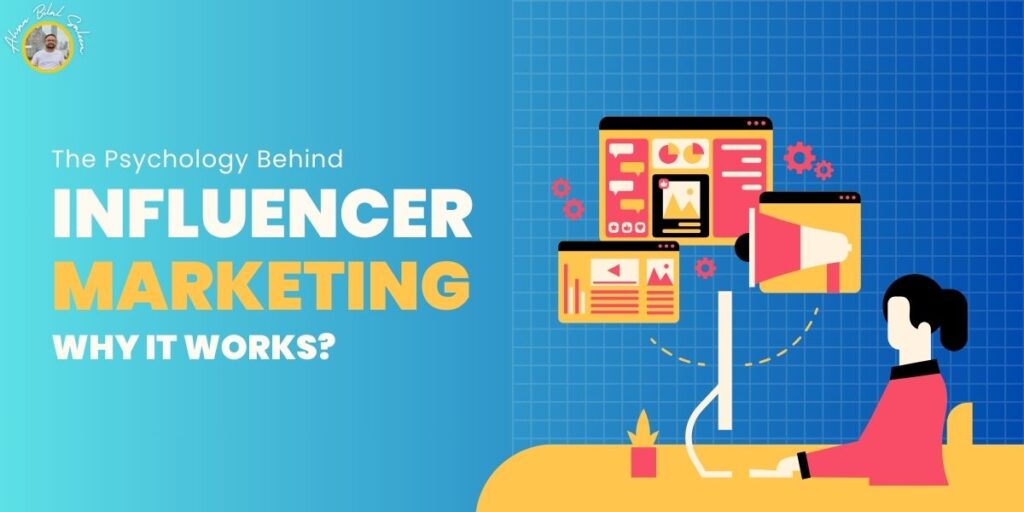In today’s digital age, consumers are bombarded with advertisements at every turn. Traditional marketing techniques, while still effective, are often met with skepticism as modern audiences crave authenticity. Enter influencer marketing, a strategy that leverages the trust and relationship influencers have cultivated with their followers to promote brands. But why is this strategy so powerful? The answer lies in psychology. Let’s explore the psychological principles that drive the effectiveness of influencer marketing.
Social Proof: The Power of Herd Mentality
Humans are inherently social creatures, and much of our behavior is influenced by what others around us are doing. This peculiarity is known as friendly verification — the mental propensity to follow the activities of others, particularly in unsure circumstances.
Influencers act as social proof by showcasing products or services in their daily lives. When followers see someone they admire using a particular product, it validates the brand’s credibility. This apparent underwriting decreases the apparent gamble of having a go at a novel, new thing, empowering likely clients to go with the same pattern.
Example:
A fitness influencer posting about a specific protein shake subtly communicates, “I use this product, and it works for me.” Followers, seeking similar results, are more likely to purchase the same product.
Authority and Expertise: Trust in Knowledge
Another psychological principle at play in influencer marketing is authority. People naturally trust those who are perceived as experts in a particular field. Influencers often build authority within their niche—whether it’s fashion, technology, fitness, or beauty—through consistent and knowledgeable content.
When an influencer with perceived expertise recommends a product, their followers are more inclined to trust the recommendation because it comes from a credible source. This trust bypasses the skepticism often associated with traditional advertising.
Example:
A tech influencer reviewing the latest smartphone model is seen as more reliable than a generic advertisement because of their perceived expertise in technology.
Parasocial Relationships: The Illusion of Friendship
Parasocial relationships are one-sided connections where an individual feels a bond with someone they don’t actually know personally—like a celebrity or influencer. These relationships create a sense of familiarity and trust, similar to how one would trust a friend’s recommendation.
Influencers excel at fostering parasocial relationships by sharing personal stories, behind-the-scenes content, and engaging directly with their followers through comments and messages. This perceived intimacy makes their product endorsements feel more genuine and trustworthy.
Example:
When an influencer shares a personal story about how a skincare product improved their confidence, followers feel emotionally connected and are more likely to buy the product.
Close to home Allure: Interfacing on a More profound Level
Influencer marketing often taps into the emotional side of consumer behavior. Unlike traditional advertisements that may focus on features and benefits, influencers weave stories around the products they promote, creating an emotional connection.
This emotional appeal can evoke feelings of happiness, excitement, or even nostalgia, making the product more memorable and desirable. Consumers are more likely to make purchasing decisions based on emotions rather than logic.
Example:
A travel influencer sharing breathtaking photos of a tropical destination while promoting a travel agency creates a sense of wanderlust and excitement, prompting followers to consider booking their next vacation.
FOMO (Fear of Missing Out): The Scarcity Effect
FOMO, or the fear of missing out, is a powerful psychological driver that can influence purchasing behavior. Influencers often leverage this by creating a sense of urgency around their promotions—limited-time offers, exclusive discounts, or new product launches.
When followers perceive that an opportunity is scarce or time-sensitive, they are more likely to act quickly to avoid missing out, even if they weren’t initially considering a purchase.
Example:
An influencer promoting a “limited edition” fashion collection can trigger FOMO, driving followers to purchase before the items sell out.
Reciprocity: The Need to Give Back
The principle of reciprocity states that people feel obligated to return a favor when someone does something for them. Influencers often offer value to their followers through free content, tips, and entertainment. In return, followers may feel a subconscious obligation to support the influencer by purchasing the products they recommend.
This psychological principle strengthens the bond between influencer and follower, turning casual viewers into loyal customers.
Example:
An influencer providing free fitness tips and meal plans may find their followers more willing to purchase their recommended supplements or workout gear.
Authenticity and Relatability: The Human Touch
Unlike traditional celebrities, influencers are often seen as “real” people who live relatable lives. This authenticity makes their endorsements feel genuine rather than scripted, making it easier for followers to trust their recommendations.
The human touch in influencer marketing fosters a sense of connection and community, which is a key psychological driver for consumer behavior.
Example:
A lifestyle influencer sharing a candid story about balancing work and family life while promoting a productivity tool resonates deeply with followers facing similar challenges.
Conclusion: The Psychological Advantage of Influencer Marketing
Influencer marketing works because it taps into fundamental human psychology—social proof, authority, emotional connection, and the need for authenticity. By leveraging these psychological principles, brands can build trust, create meaningful connections, and drive consumer behavior in ways that traditional marketing simply cannot achieve.
As the digital landscape continues to evolve, understanding the psychology behind influencer marketing will be crucial for brands looking to stay competitive and relevant in an increasingly crowded marketplace.
